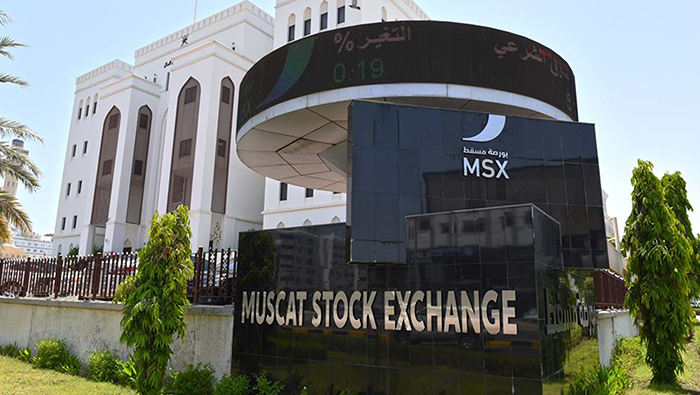
Muscat: Oman’s Muscat Securities Exchange (MSX) index was the only monthly decliner in the GCC market during February-2022 according to a new report.
“The benchmark declined for the second consecutive month during February-2022 registering a drop of 1.5 per cent to close the month at 4,055.42 points,” the Kuwait-based Kamco Invest said in its GCC monthly market report.
In terms of sectoral performance, both the Financial and Industrial indices recorded declines during the month at 1.7 per cent and 1.3 per cent, respectively. On the other hand, the Services index showed a gain of 2.6 per cent to close the month at 1,643.9 points.
Monthly trading activity on the exchange witnessed significant improvement as compared to last month. The total volume of shares traded during February-2022 was up 39.8 per cent to reach 504.8 million shares as compared to 341.8 million shares during January-2022, the report said.
On the other hand, monthly value traded also witnessed a rise of 47.7 per cent to reach OMR87.7 million as compared to OMR62.8 million during January-2022, indicating relatively higher trades in large-cap stocks on the exchange.
The share of Omanis in the total value of buy trades declined to 90.88 per cent during February-2022 as compared to 92.62 per cent in January-2022. In terms of the value of sell trades, the share of Omanis also declined to 88.6 per cent in February-2022 against 91.01 per cent in January-2022.
The share of Gulf Cooperation Council (GCC) investors was relatively higher month-on-month at 5.78 per cent for the value of buy trades (4.83 per cent in January-2022) and 7.61 per cent for the value of sell trades (4.09 per cent during January-2022) during the month.
GCC markets
GCC equity markets remained largely insulated from the global sell-off and increased volatility. The MXGCC index declined marginally by 0.8 per cent last week but gains during the previous weeks led to a monthly gain of 4.2 per cent during February-2022, the Kamco Invest report said.
The sector performance chart for the GCC markets showed the Energy sector leading with a gain of 8.3 per cent followed by Hotels, Restaurant & Leisure and Capital Goods indices with gains of 5.4 per cent and 4.9 per cent, respectively.
Banks were next with a gain of 4.4 per cent. On the decliner’s side, the Consumer Goods & Apparels index topped sliding by 12.0 per cent followed by Pharma and F&B indices with declines of 4.6 per cent and 1.6 per cent, respectively, the report added.
Saudi Arabia (Tadawul)
The Saudi Stock Exchange continued to see new multi-year highs during February-2022 after witnessing a strong primary market activity since the start of the year.
The benchmark TASI index closed the month at the highest level in 16.5 years at 12,590.3 points with a monthly gain of 2.6 per cent. The gain in oil prices also supported the gains during the month that more than offset global geopolitical events concerning Russia and Ukraine.
Abu Dhabi Securities Exchange
The FTSE ADX index was the second-best performing market in the GCC during February-2022 registering a 7.1 per cent monthly growth to close at 9,319.4 points.
In comparison, the exchange’s market cap increased by 8.9 per cent during the month to reach AED1.7 trillion mainly due to the listing of Abu Dhabi Ports on the exchange during the month.
In terms of sector performance, the Financial (Banks) index recorded an increase of 10.2 per cent, the largest monthly gain among the indices, to reach 13,717.8. The Telecom index followed witnessing a growth of 5.5 per cent during February-2022 registering the second-largest gain among the indices to close at 8,558.64 points. The Consumer Staples index was the only decliner during the month with a fall of 3.1 per cent.
Dubai Financial Market
After showing flattish returns during January-2022, the DFM General Index reported the third-best performance in the GCC during February-2022. The benchmark gained 4.7 per cent during the month and closed at 3,354.64 points.
The monthly index performance was supported by gains in six out of nine sectoral indices including large-cap sectors such as Banks, Telecom and Real Estate.